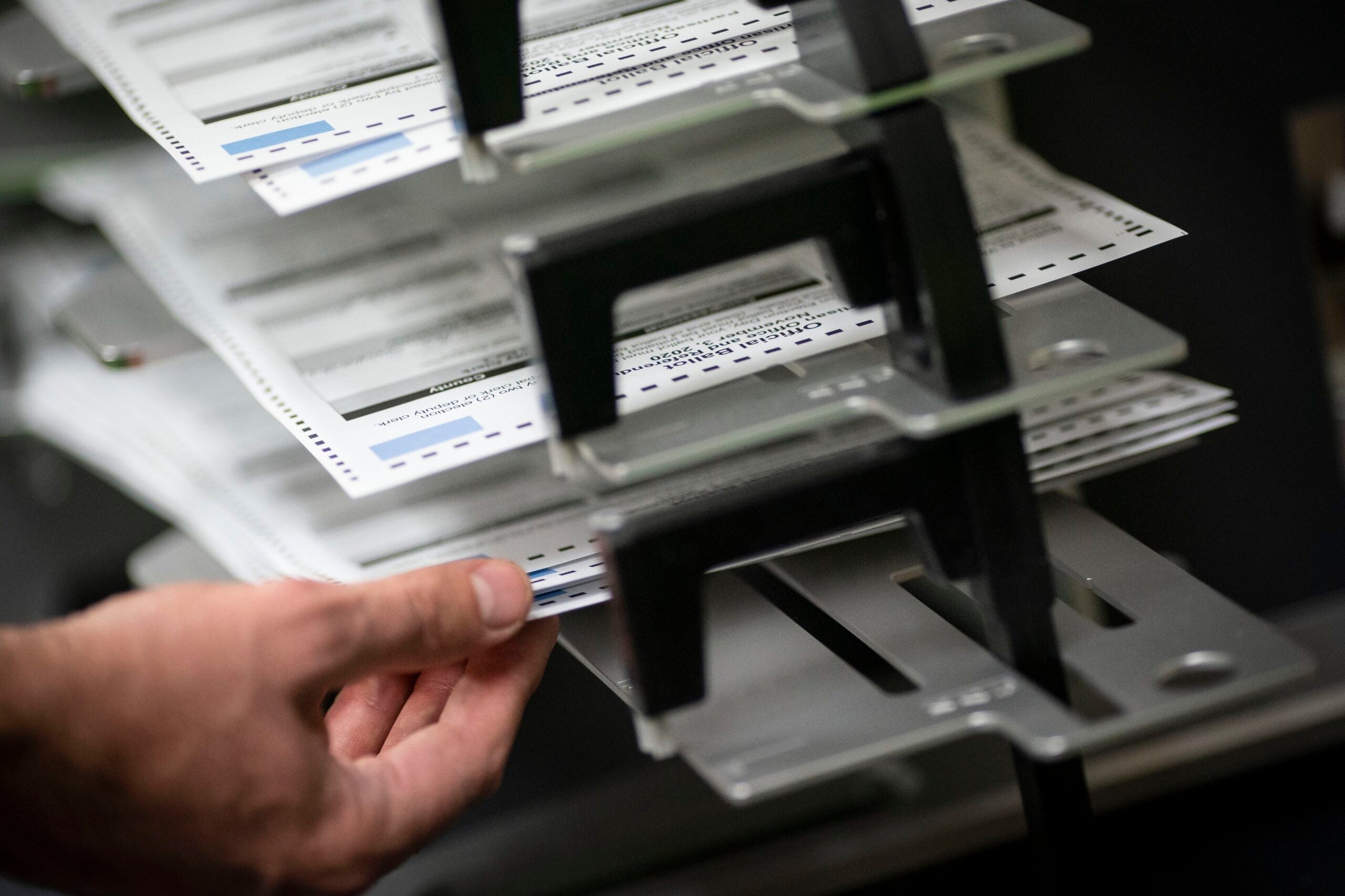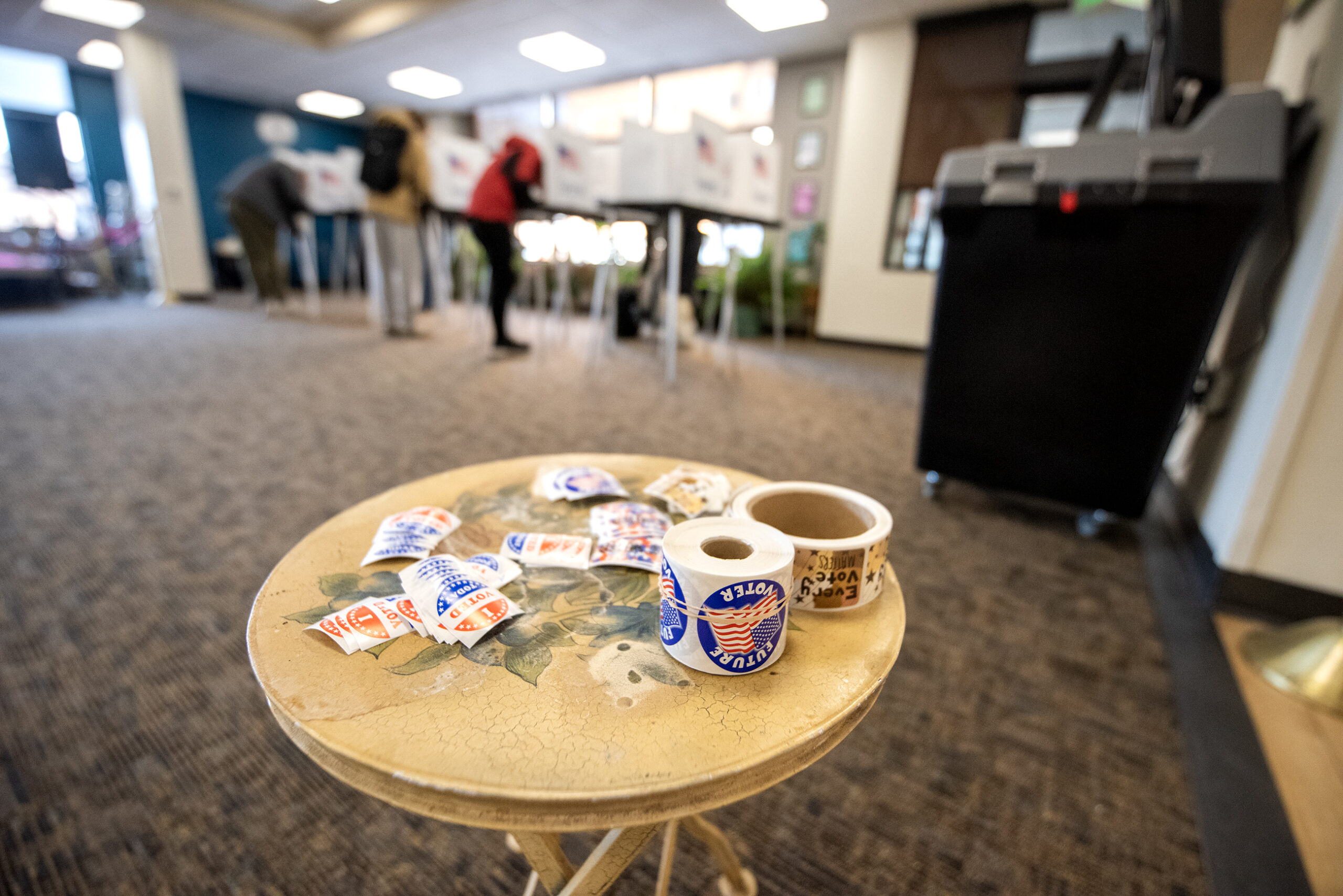The Wisconsin Elections Commission has voted to tell local clerks that they must allow disabled voters to request help from someone else to return their absentee ballots.
The move comes a week after a federal judge ruled in favor of a group of disabled residents who sued the state, warning the Commission that it needed to provide clarification to voters.
On Tuesday, commissioners voted 4-2 to do just that, passing a motion instructing clerks that they must accept absentee ballots on a disabled voter’s behalf under the federal Voting Rights Act.
News with a little more humanity
WPR’s “Wisconsin Today” newsletter keeps you connected to the state you love without feeling overwhelmed. No paywall. No agenda. No corporate filter.
“There’s a federal court case that told us what the law is,” said Democratic commissioner Ann Jacobs, who authored the proposal. “The clerk doesn’t get to tell someone you don’t get to bring in the ballot.”
Under Jacobs’ motion, clerks will be instructed that “any Wisconsin voter who requires assistance with mailing or delivering their absentee ballot to the municipal clerk because of a disability must be permitted to receive such assistance by a person of the voter’s choice.” The person returning the ballot can’t be the disabled voter’s employer or union.
The Commission will also instruct clerks that they don’t need to confirm a person’s disability if they’re being provided voting assistance. It also won’t require clerks to confirm the identity of the person returning a ballot. One person could also assist more than one disabled absentee voter.
Jacobs’ motion was supported by all three Democratic appointees on the Wisconsin Elections Commission. Republican appointee Marge Bostelman also supported it.
The other Republicans voted against the plan. Commissioner Bob Spindell said he favored some kind of attestation from people returning ballots that they were complying with state and federal law.
“All I’m saying is there has to be some sort of certification, otherwise we’re back to ballot harvesting again,” Spindell said.
Tuesday night’s vote was the latest episode in a voting law dispute that began earlier this year when the Wisconsin Supreme Court ruled that absentee ballot drop boxes are not allowed in Wisconsin. In the same ruling, the court’s conservative majority also ruled that it’s illegal for someone else, like a spouse or roommate, to return a voter’s completed absentee ballot to the clerk’s office.
Four disabled voters sued in a case brought by the progressive group Law Forward, arguing they live with disabilities that make them physically incapable of voting in person and require them to have someone else send in their ballot.
U.S. District Court Judge James Peterson sided with the plaintiffs, blaming the Elections Commission for not providing enough clarification. If the state didn’t act, Peterson said, the court would.
Elections Commission staff initially presented commissioners with options for carrying out the judge’s orders that were different from what the panel ultimately passed. One would have required signed forms, both from the disabled voters casting the ballots and from the people returning them.
Jacobs admonished staff for suggesting the proposal, saying it would have added more confusion.
“I was really stunned by it, I’ll be honest,” Jacobs said. “Our job is to pick the direction and tell people what the law requires.”
Commission attorney Jim Witecha told Jacobs they were meant to give commissioners a comprehensive document that they could work from. He conceded that the staff’s recommendations were more cautious.
“The commission has been admonished for overreaching on several occasions,” Witecha said.
At the heart of many of those disputes has been whether commissioners have the authority to issue substantive guidance to clerks without first getting the Legislature’s approval through the administrative rulemaking process.
Wisconsin Public Radio, © Copyright 2026, Board of Regents of the University of Wisconsin System and Wisconsin Educational Communications Board.







